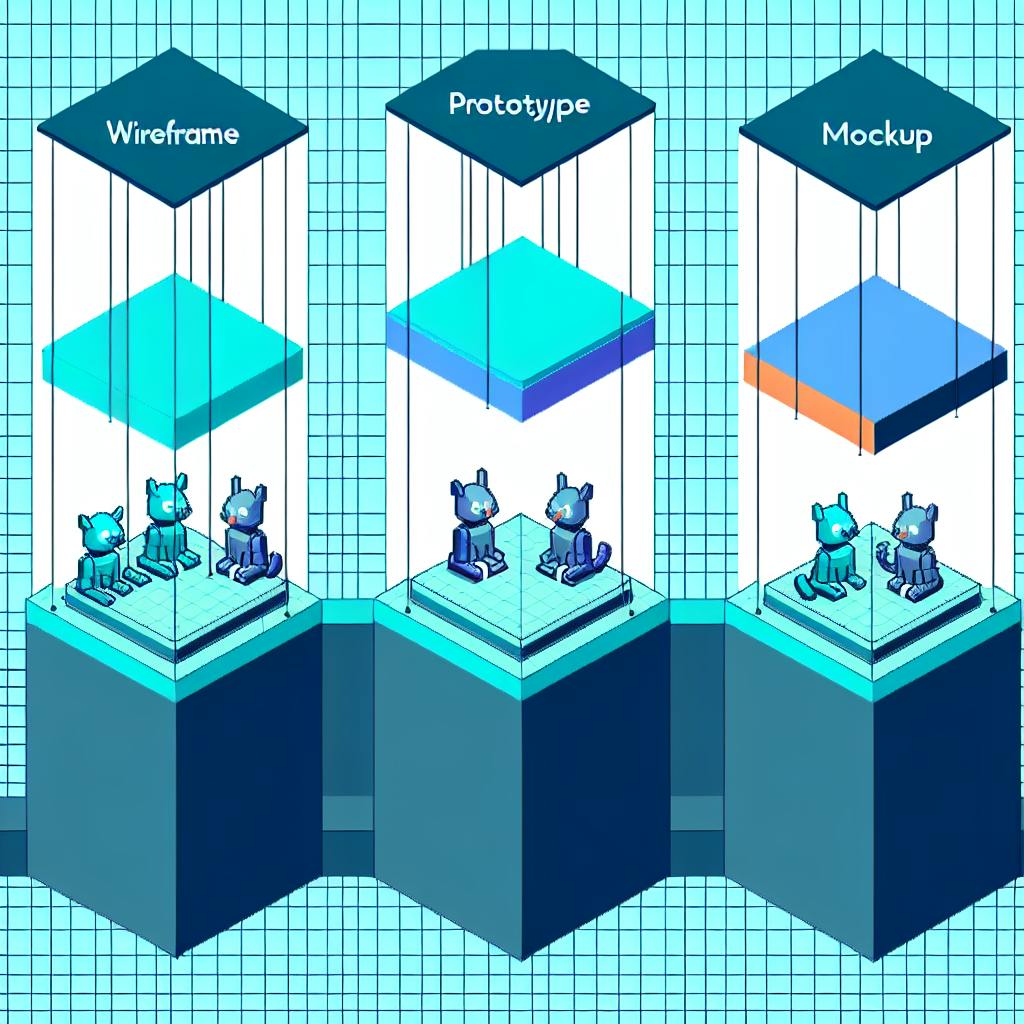A Content Management System (CMS) allows you to easily create, manage, and publish digital content on websites or web apps. Scheduling content is a key feature that enables planning and automating when your content goes live or expires.
Here are the top 10 CMS platforms with scheduled publishing capabilities:
Related video from YouTube
Quick Comparison
| CMS | Scheduled Publishing | Content Workflow | User Management | Pricing (Annual) |
|---|---|---|---|---|
| WordPress | ✅ (With plugins) | ✅ (With plugins) | ✅ | Free (Self-hosted) $4 - $45 (Managed hosting) |
| Contentful | ✅ | ✅ | ✅ | $489 - $3,997 |
| Webflow | ✅ | ✅ | ✅ | $16 - $212 |
| Drupal | ✅ | ✅ | ✅ | Free (Self-hosted) $9 - $80 (Managed hosting) |
| Joomla | ✅ | ✅ | ✅ | Free (Self-hosted) $7 - $27 (Managed hosting) |
| Concrete CMS | ✅ | ✅ | ✅ | Free (Self-hosted) $59 - $599 (Managed hosting) |
| TYPO3 | ✅ | ✅ | ✅ | Free (Self-hosted) $99 - $499 (Managed hosting) |
| Wix | ✅ | ✅ | ✅ | $14 - $35 |
| Storyblok | ✅ | ✅ | ✅ | $99 - $999 |
| HubSpot CMS Hub | ✅ | ✅ | ✅ | $300 - $3,600 |
These CMS platforms offer scheduled publishing as a core feature or through plugins/extensions. They also provide content workflow tools, user management, and varying pricing models based on your needs and budget.
When choosing a CMS, consider factors like ease of use, scalability, community support, and your specific requirements for content creation, review, and publishing processes.
1. WordPress
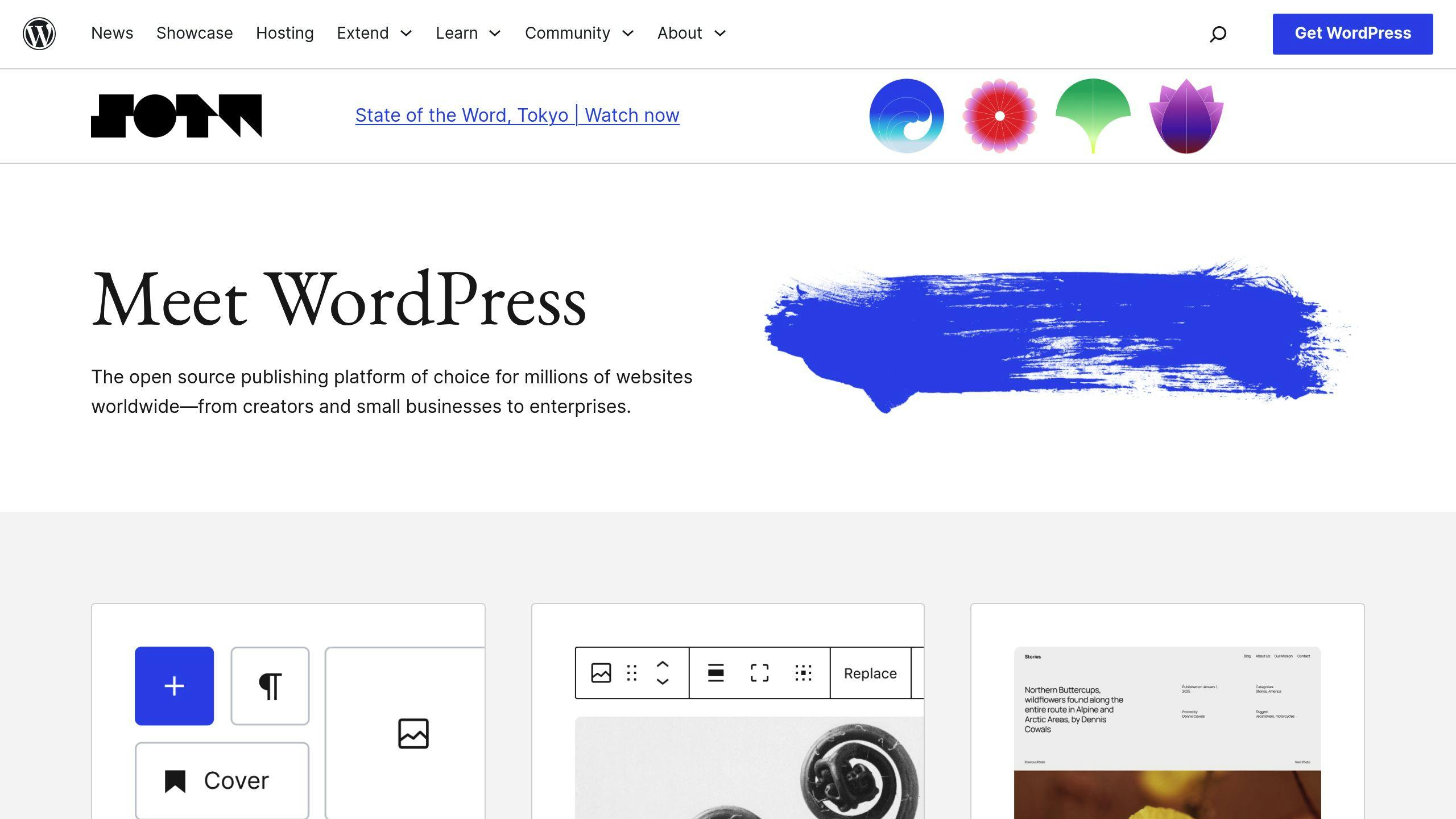
WordPress is a popular open-source CMS that powers over 40% of websites worldwide. It offers a user-friendly interface and a vast ecosystem of plugins and themes. The scheduling feature in WordPress allows you to:
- Schedule Posts: Write and schedule blog posts, articles, or updates to publish automatically at a future date and time.
- Recurring Events: Set recurring events like weekly newsletters or monthly updates to publish on a regular schedule.
- Editorial Workflows: Collaborate with team members, review drafts, and schedule approved content for publication.
| Feature | Description |
|---|---|
| Schedule Posts | Write and schedule posts to publish automatically |
| Recurring Events | Set recurring events like newsletters or updates |
| Editorial Workflows | Collaborate, review, and schedule approved content |
2. Contentful
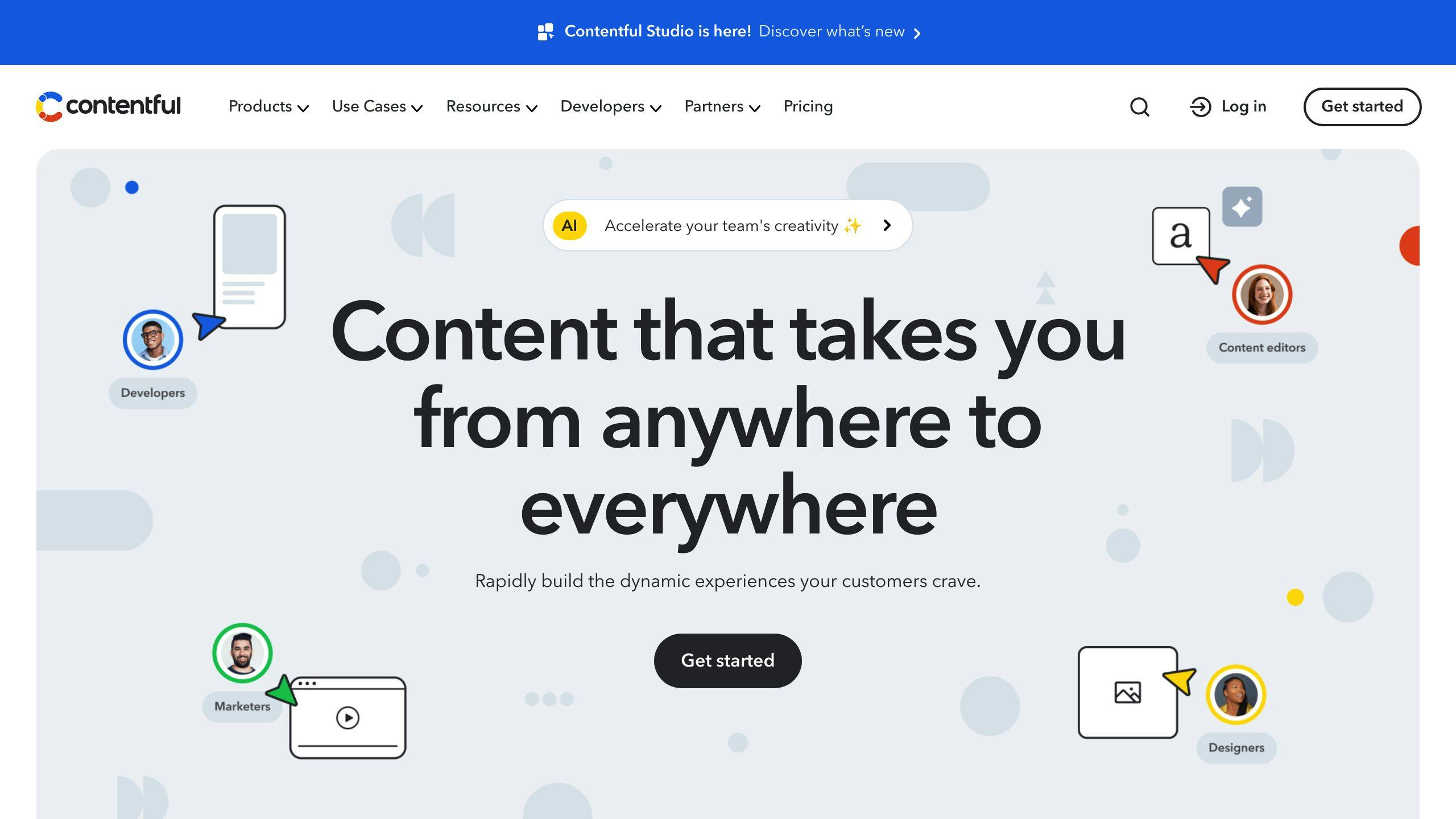
Scheduling Content Releases
Contentful simplifies content scheduling, allowing you to plan and automate when your content goes live or expires:
1. Set Publish Dates: Schedule specific dates and times for publishing or unpublishing content across multiple channels.
2. Time Zone Support: Ensure your content is delivered at the optimal time for your global audience by scheduling releases according to different time zones.
3. Calendar Overview: Visualize upcoming releases, entries, and assets through Contentful's calendar interface for a comprehensive overview.
User-Friendly Scheduling
Contentful's intuitive interface makes scheduling content a breeze:
- Drag-and-Drop Calendar: Leverage the visual calendar to drag and drop content for scheduling with just a few clicks.
- Bulk Actions: Schedule multiple content items simultaneously, saving time.
- Flexible Editing: Modify scheduled release dates, times, or time zones as needed.
Streamlined Workflows
Contentful integrates with various platforms and tools to streamline your content workflows:
- Headless CMS Integration: Deliver scheduled content to your websites, applications, and digital experiences through Contentful's API-first approach.
- Third-Party Tool Connections: Connect with popular project management, collaboration, and marketing automation tools for efficient content planning and distribution.
3. Webflow
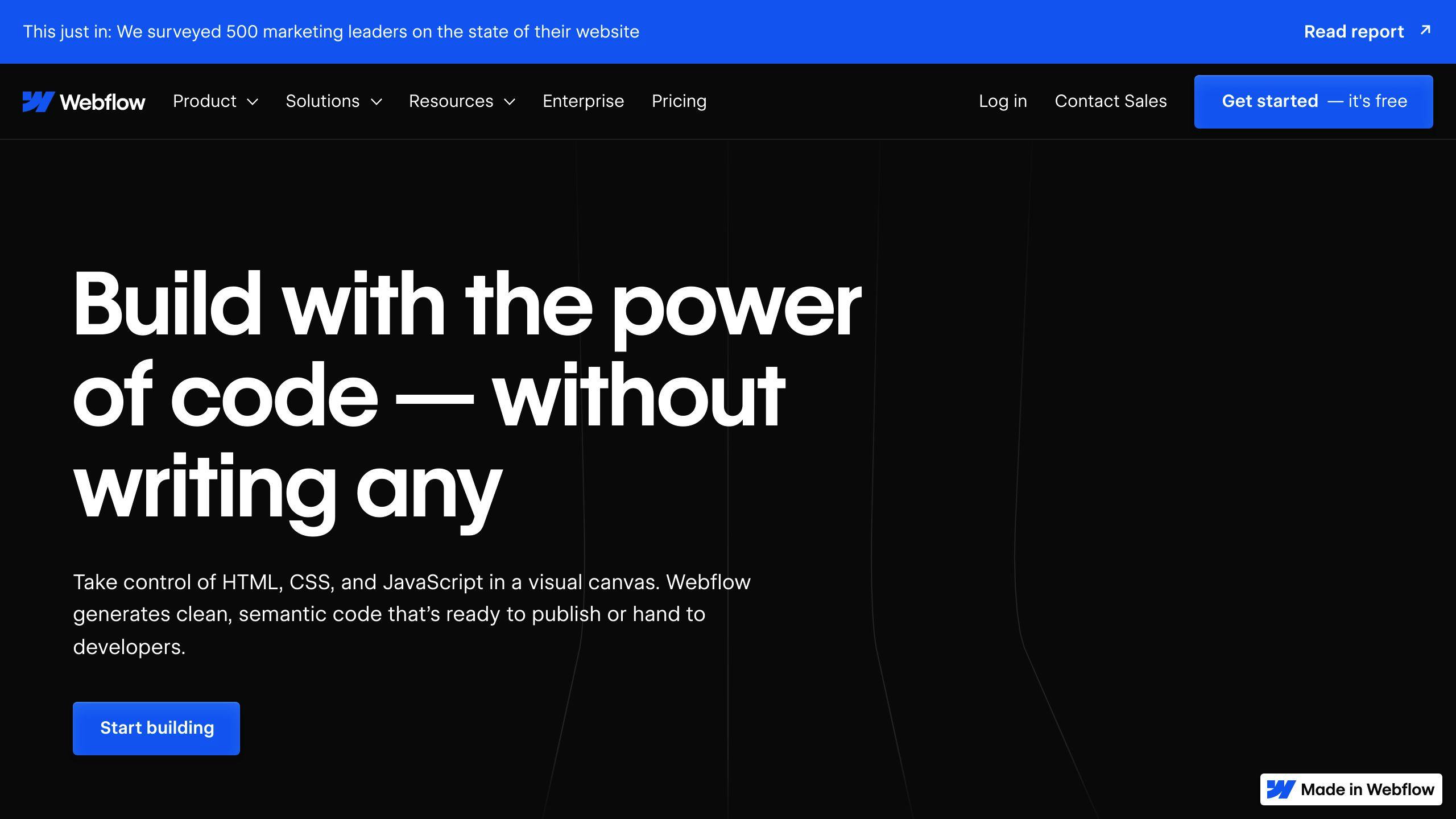
Scheduling Content
Webflow's CMS allows you to plan and automate when your content goes live or expires:
1. Set Publish Dates: Schedule specific dates and times for publishing new CMS items.
2. Unpublish Dates: Set expiration dates to automatically unpublish content after a certain period, keeping your site fresh.
3. Time Zone Support: Publish content at the ideal time for your global audience by scheduling releases according to different time zones.
User-Friendly Scheduling
Webflow's interface makes scheduling content simple:
- Visual Calendar: Drag and drop content for scheduling with a few clicks.
- Bulk Scheduling: Schedule multiple CMS items at once, saving time.
- Edit Schedules: Modify scheduled publish and unpublish dates, times, or time zones as needed.
Integrations
Webflow's CMS integrates with various platforms and tools:
- Headless CMS Integration: Deliver scheduled content to your websites, apps, and digital experiences through Webflow's API.
- Third-Party Connections: Connect with project management, collaboration, and marketing automation tools for efficient content planning and distribution.
4. Drupal
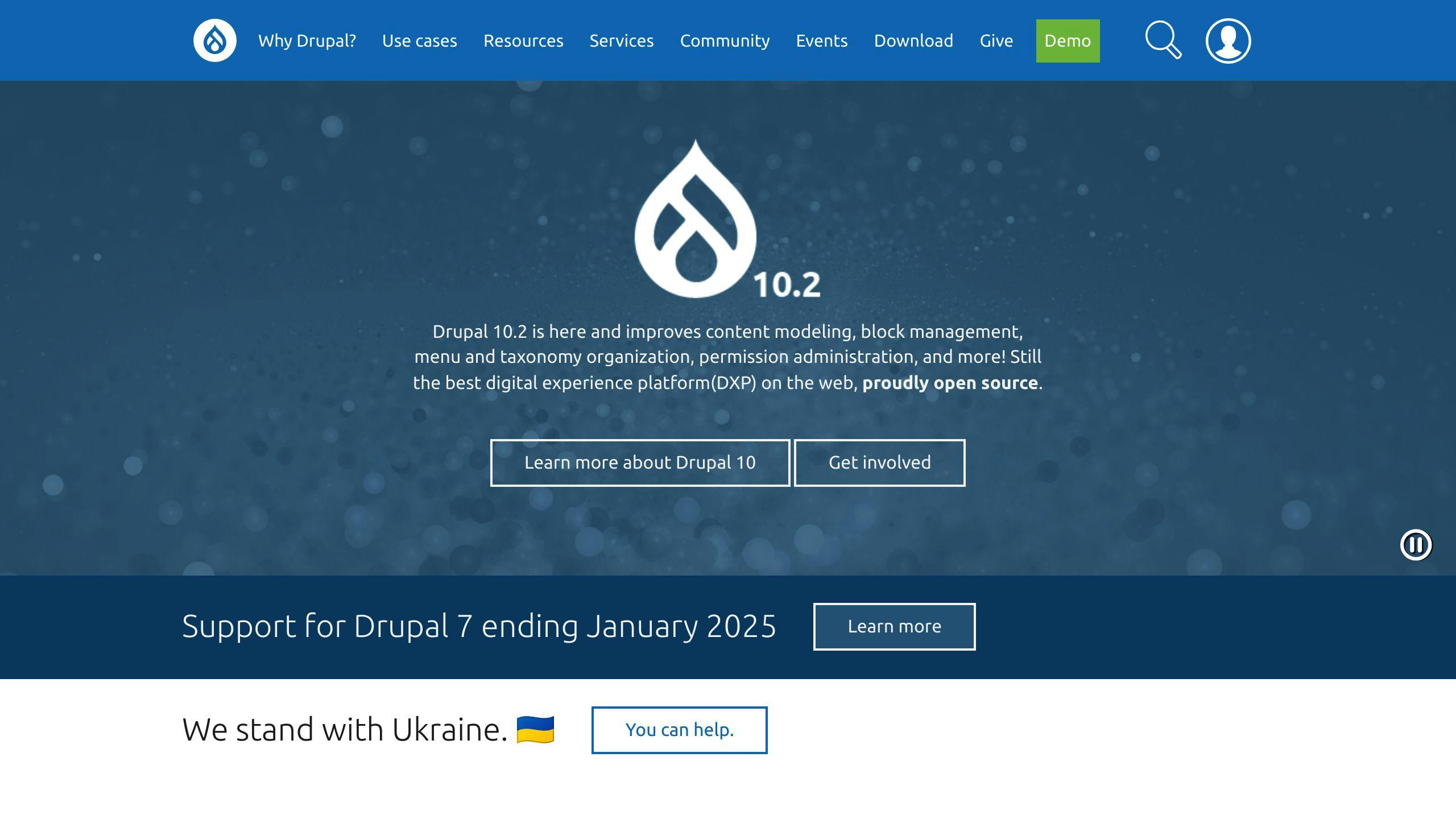
Scheduling Content
Drupal's Scheduler module allows you to easily schedule when your content goes live or expires:
- Publish Date: Set the exact date and time for your content to be published.
- Unpublish Date: Specify an expiration date for your content to be automatically unpublished.
- Time Zone Support: Schedule releases for different time zones to reach a global audience.
- Cron Integration: Scheduled content is published or unpublished based on your site's cron system runs.
User-Friendly Interface
The Scheduler module provides a simple interface for managing scheduled content:
- Visual Calendar: Drag and drop content items onto a calendar for quick scheduling.
- Bulk Actions: Schedule multiple pieces of content at once, saving time.
- Edit Schedules: Modify scheduled dates, times, and time zones as needed.
Integrations
Scheduler integrates with other popular Drupal modules and tools:
| Integration | Description |
|---|---|
| Content Moderation | Schedule moderated content workflows |
| Rules | Use Scheduler's conditions, actions, and events within the Rules module |
| Devel Generate | Automatically add publishing and unpublishing dates for test content |
Pricing
The Scheduler module is free and open-source, making it a cost-effective solution for scheduling content in Drupal.
5. Joomla
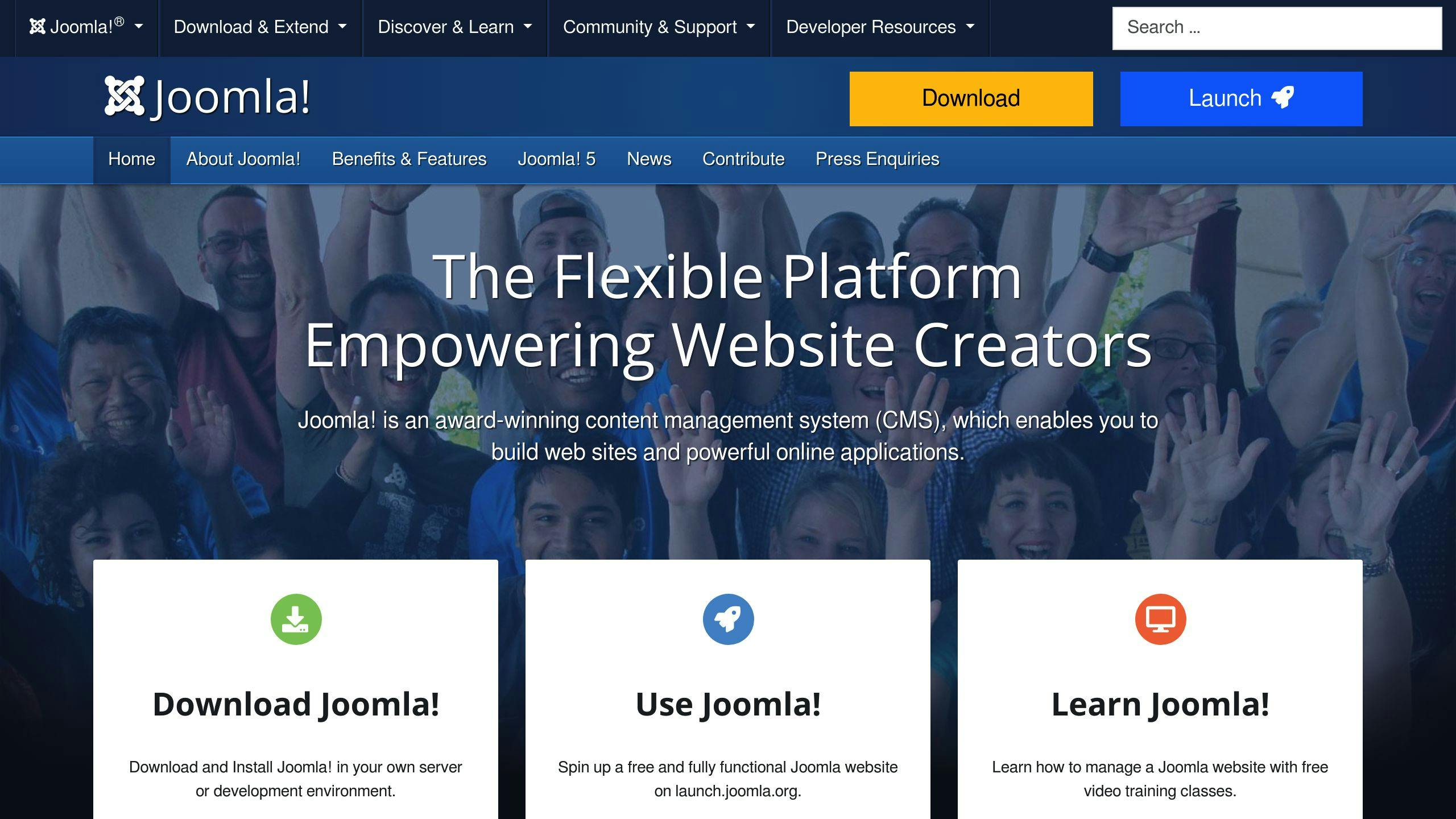
Schedule Content Publishing
Joomla allows you to schedule when articles should be published or unpublished on your site:
1. Publish Date: Set a future date and time for an article to automatically go live.
2. Unpublish Date: Specify when a published article should automatically become unpublished.
3. Featured Article Scheduling: Control the start and end dates for when an article should be featured on your site.
Simple Scheduling Interface
Joomla's scheduling options are easy to use:
- Access scheduling from the "Publishing" tab when editing an article.
- Use calendar pickers to visually select start/end dates.
- Set specific times using dropdown menus.
- "Clear" and "Today" buttons quickly reset dates.
Free and Open-Source
As an open-source CMS, Joomla's core scheduling functionality is completely free to use.
Integrations
While Joomla does not have dedicated scheduling extensions, you can use scheduling with:
| Integration | Description |
|---|---|
| Content Workflows | Schedule publishing alongside content moderation statuses |
| Third-Party Extensions | Developers can leverage Joomla's scheduling events and actions |
sbb-itb-2c3f1c2
6. Concrete CMS
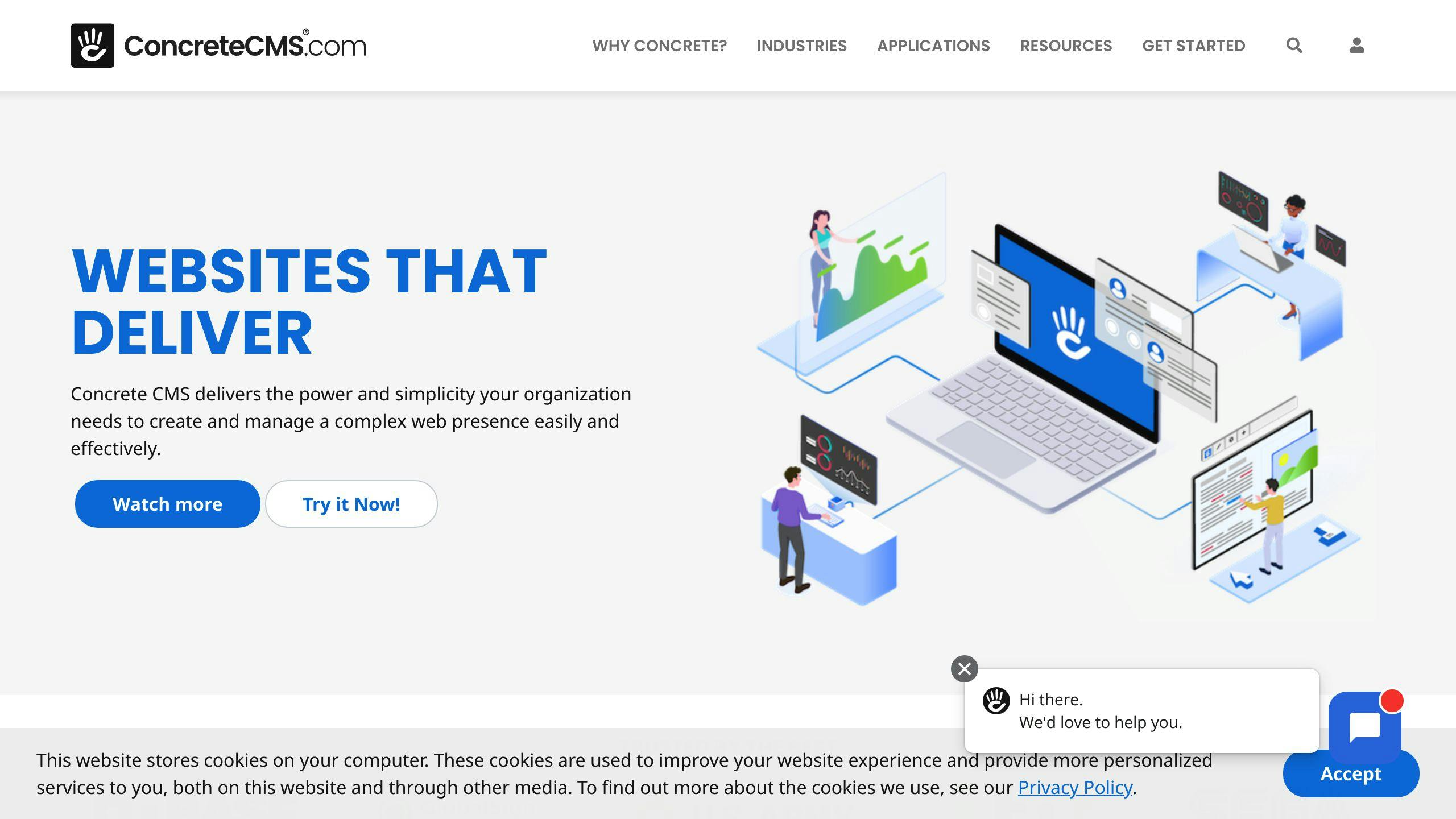
Schedule Content Publishing
Concrete CMS makes it easy to plan and manage your content publishing schedule:
- Schedule New Content: Create CMS items and set a future date and time for automatic publishing.
- Unpublish Content: Specify an unpublish date for existing content to automatically remove it from your live site.
- Recurring Schedules: Set content to republish regularly, like weekly, monthly, or yearly.
Simple Scheduling Interface
Concrete CMS provides a user-friendly interface for scheduling content:
- Visual Calendar: Select publish and unpublish dates from a calendar view.
- Custom Workflows: Create workflows to review and approve scheduled content before publishing.
- Role-Based Access: Control who can schedule and publish content based on user roles.
Free and Open-Source
Concrete CMS's core scheduling functionality is free and open-source. Premium add-ons and hosting plans may have costs.
Integrations
Extend scheduling features with integrations:
| Integration | Description |
|---|---|
| Third-Party Extensions | Developers can create custom extensions for enhanced scheduling |
| Content Workflows | Combine scheduled publishing with review and approval workflows |
| Calendars and Events | Schedule content to align with specific dates or campaigns |
7. TYPO3
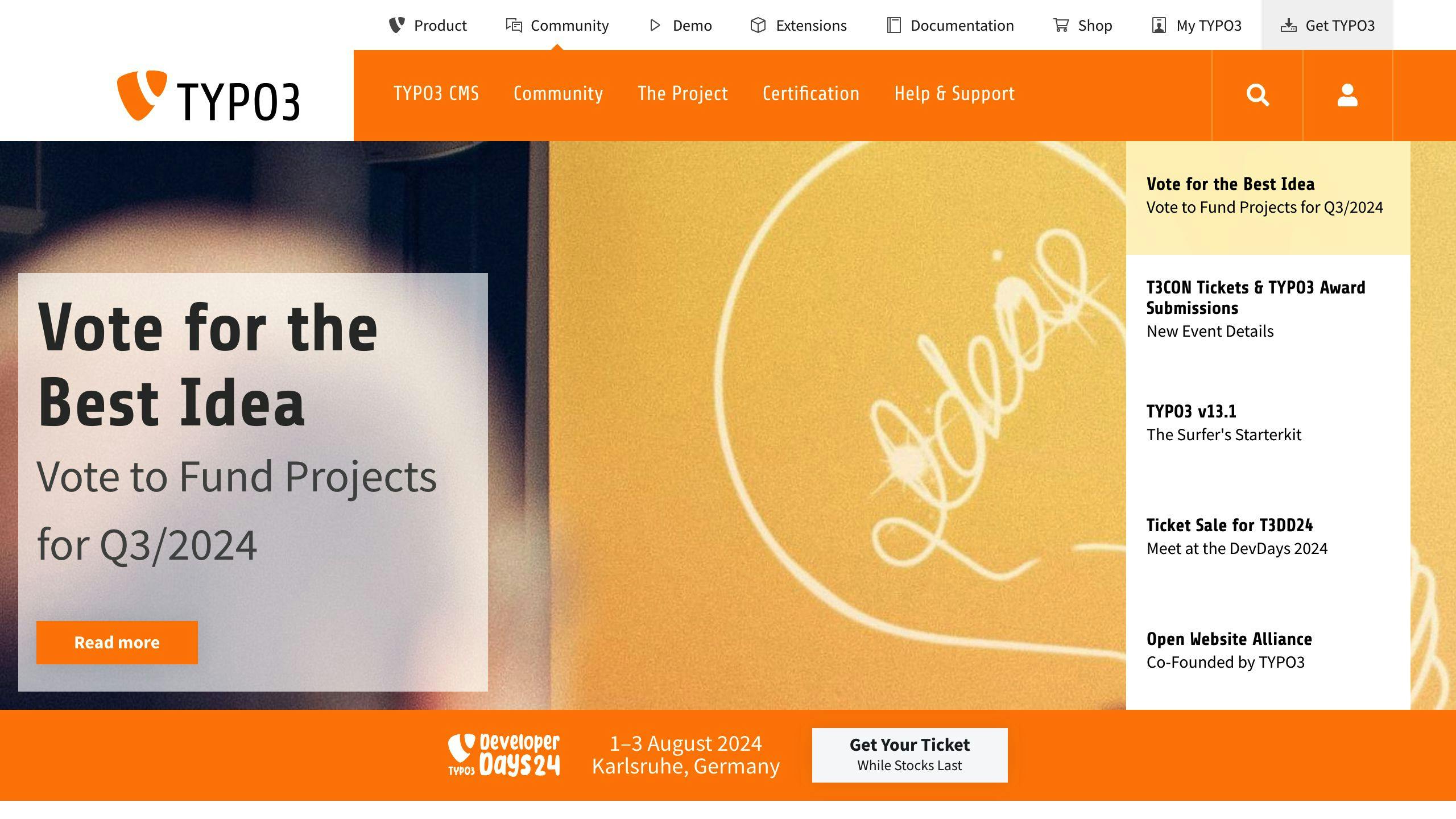
Schedule Content Publishing
With TYPO3, you can easily plan and automate your content publishing:
1. Set Publish Dates: Create content and schedule it to go live automatically on a specific future date and time.
2. Unpublish Content: Specify an expiration date for published content to be automatically removed from your site.
3. Recurring Schedules: Set content to republish regularly, like weekly, monthly, or yearly.
User-Friendly Interface
TYPO3's scheduling interface is designed for simplicity:
- Visual Calendar: Select publish and unpublish dates from a calendar view.
- Workflow Integration: Review and approve scheduled content before publishing.
- Role-Based Access: Control who can schedule and publish content based on user roles.
Pricing
TYPO3's core scheduling functionality is free and open-source. Premium add-ons and hosting plans may have additional costs.
Integrations
Extend scheduling features with:
| Integration | Description |
|---|---|
| Third-Party Extensions | Developers can create custom scheduling extensions |
| Content Workflows | Combine scheduled publishing with review and approval workflows |
| Calendars and Events | Schedule content to align with specific dates or campaigns |
8. Wix

Schedule Blog Posts
Wix allows you to schedule when your blog posts will be published automatically. You can:
1. Schedule Posts in Advance: Write blog posts ahead of time and set the exact date and time for them to go live, ensuring consistent publishing.
2. Set Recurring Schedules: Configure posts to republish automatically on a regular schedule, like weekly, monthly, or yearly.
3. Unpublish Scheduled Posts: Specify an end date for scheduled posts to be removed from your site after a certain period.
Simple Scheduling
Wix's scheduling interface is designed for ease of use:
- Visual Calendar: Select publish and unpublish dates from a calendar view.
- Drag-and-Drop: Easily drag and drop posts onto desired dates in the calendar.
- Notifications: Receive email alerts when scheduled posts go live or expire.
Pricing
Blog scheduling is included in all Wix premium plans, starting from the Combo plan ($14/month). The free plan does not offer scheduling.
Integrations
While Wix does not directly integrate scheduling, you can:
- Share on Social Media: Automatically share new blog posts on connected social channels when they go live.
- Email Marketing: Integrate with email marketing services to notify subscribers about new scheduled content.
- Analytics: Connect to analytics tools to track the performance of scheduled blog posts.
9. Storyblok
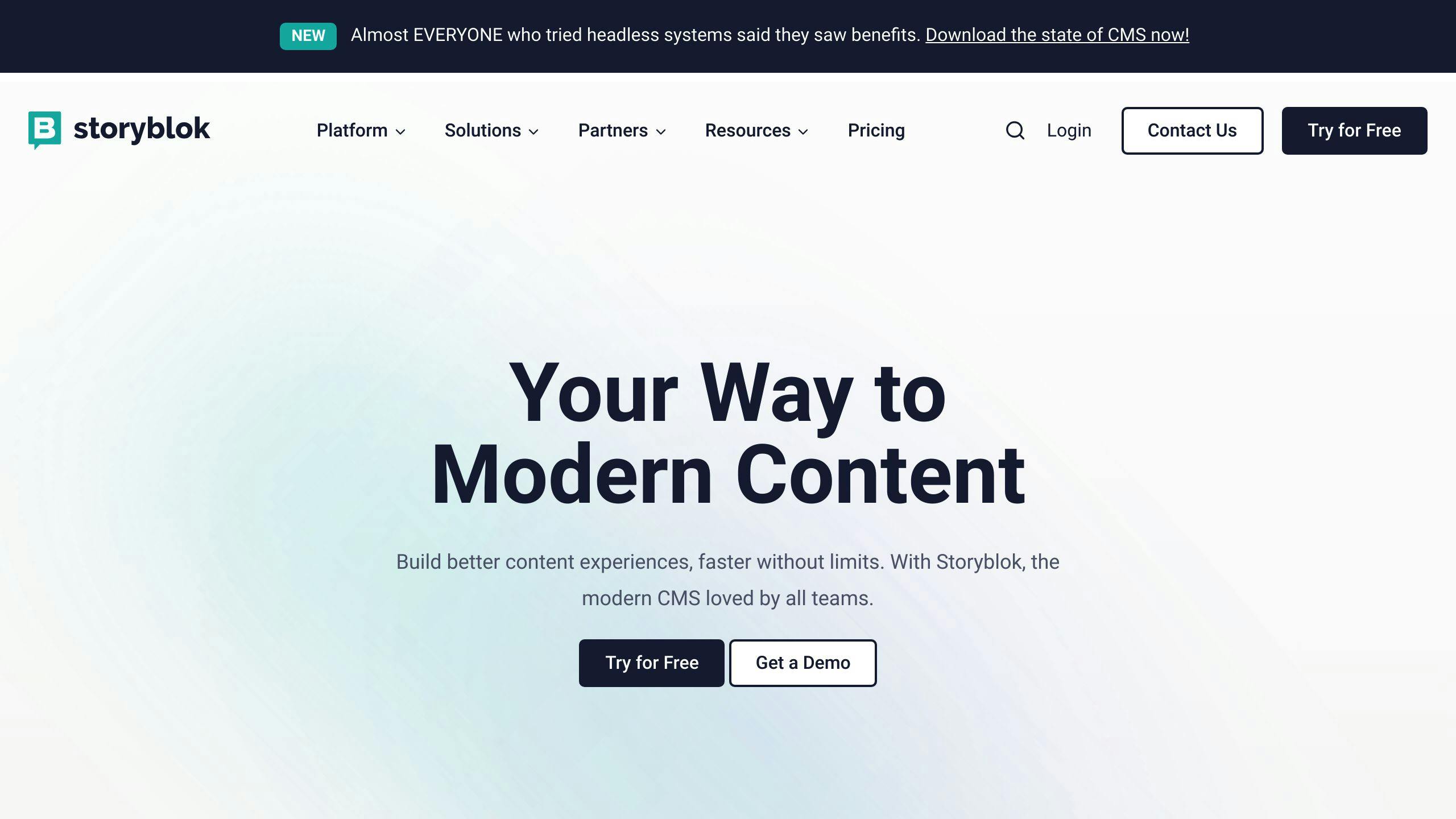
Scheduling Content Releases
Storyblok offers a scheduling feature called "Releases" that allows you to plan when your content will go live. Even with the Free Plan, you can:
- Schedule Single Stories: Set a future date and time for publishing individual content pieces.
- Schedule Story Groups: Schedule multiple related stories to publish together at a specified time.
- Workflow Stages: Move your content through Drafting, Reviewing, and Ready to publish stages before scheduling.
Once your content is ready, Storyblok will automatically publish the scheduled stories at the set time, ensuring consistent and timely publishing.
User-Friendly Scheduling
Storyblok's scheduling interface is designed for ease of use:
- Calendar View: Select publish dates from a visual calendar.
- Workflow Process: Follow predefined stages to prepare content for scheduling.
- Email Alerts: Receive notifications when scheduled releases go live.
Pricing
The "Releases" scheduling feature is included in Storyblok's Free Plan, making it accessible to all users. Premium plans offer additional capabilities.
Integrations
While Storyblok does not directly integrate scheduling with other services, you can leverage its headless CMS architecture to integrate with various tools:
| Integration | Description |
|---|---|
| Static Site Generators | Automatically rebuild and deploy your website when scheduled content is published. |
| Content Delivery Networks (CDNs) | Efficiently distribute your scheduled content globally using CDNs. |
| Analytics Tools | Track the performance of your scheduled releases using integrated analytics platforms. |
10. HubSpot CMS Hub
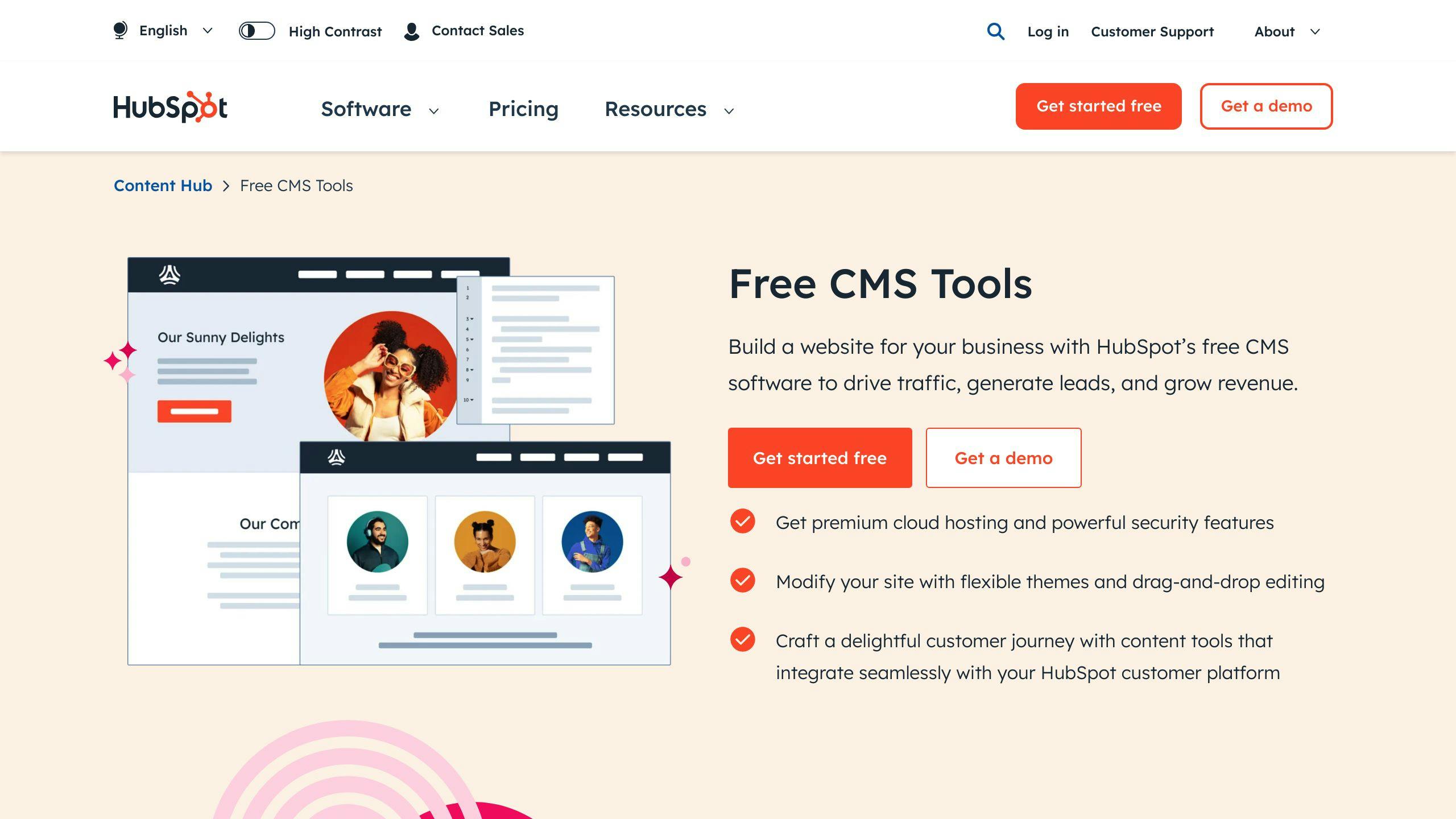
Schedule Content Releases
With HubSpot CMS Hub, you can plan and schedule your content releases in advance:
1. Schedule Individual Content: Set a future date and time for publishing web pages, blog posts, or landing pages.
2. Schedule Content Batches: Group related content and schedule them to publish together at a predetermined time.
3. Content Workflow: Move your content through drafting, reviewing, and approval stages before scheduling for publication.
HubSpot will automatically publish your scheduled content at the designated time, ensuring a consistent release schedule.
User-Friendly Scheduling
HubSpot CMS Hub's scheduling interface is designed for ease of use:
- Calendar View: Select publish dates from a calendar.
- Workflow Process: Follow predefined stages to prepare and schedule releases.
- Email Alerts: Receive notifications when scheduled content goes live.
Pricing
Content scheduling is included in HubSpot CMS Hub's paid plans.
Integrations
While HubSpot CMS Hub does not directly integrate scheduling with other services, it allows for seamless integration with various tools:
| Integration | Description |
|---|---|
| Static Site Generators | Automatically rebuild and deploy your website when scheduled content is published. |
| Content Delivery Networks (CDNs) | Efficiently distribute your scheduled content globally using CDNs. |
| Analytics Tools | Track the performance of your scheduled releases using integrated analytics platforms. |
| Marketing Automation | Coordinate your scheduled content releases with marketing campaigns and lead nurturing efforts. |
CMS Feature Comparison
Here's a side-by-side look at key features, costs, and other factors across top CMS platforms with scheduled publishing:
| CMS | Scheduled Publishing | Content Workflow | User Management | Pricing (Annual) | Integrations |
|---|---|---|---|---|---|
| WordPress | ✅ (With plugins) | ✅ (With plugins) | ✅ | Free (Self-hosted) $4 - $45 (Managed hosting) |
Extensive plugin options |
| Contentful | ✅ | ✅ | ✅ | $489 - $3,997 | Headless CMS, works with modern web frameworks |
| Webflow | ✅ | ✅ | ✅ | $16 - $212 | Ecommerce, CRM, analytics tools |
| Drupal | ✅ | ✅ | ✅ | Free (Self-hosted) $9 - $80 (Managed hosting) |
Extensive module options |
| Joomla | ✅ | ✅ | ✅ | Free (Self-hosted) $7 - $27 (Managed hosting) |
Extensions for various integrations |
| Concrete CMS | ✅ | ✅ | ✅ | Free (Self-hosted) $59 - $599 (Managed hosting) |
Limited native integrations |
| TYPO3 | ✅ | ✅ | ✅ | Free (Self-hosted) $99 - $499 (Managed hosting) |
Extensive extension options |
| Wix | ✅ | ✅ | ✅ | $14 - $35 | Limited native integrations |
| Storyblok | ✅ | ✅ | ✅ | $99 - $999 | Headless CMS, works with modern web frameworks |
| HubSpot CMS Hub | ✅ | ✅ | ✅ | $300 - $3,600 | Extensive marketing and sales integrations |
Key Points:
- All listed CMS platforms offer scheduled publishing, either built-in or through plugins/extensions.
- Most provide content workflow features to streamline creation, review, and approval processes.
- All support user management with varying levels of role-based access control.
- Pricing ranges from free (self-hosted) to paid managed hosting or SaaS plans, based on features and scalability needs.
- Integration capabilities differ, with some offering extensive plugin/extension ecosystems, while others focus on native integrations with specific tools or frameworks.
When choosing a CMS, consider factors like ease of use, scalability, community support, and your project or organization's specific requirements.
Final Thoughts
Choosing the right Content Management System (CMS) with scheduling features is key for streamlining your content publishing workflows. As content creators and marketers, the ability to plan and schedule content ahead of time saves effort, ensures consistency, and maximizes audience engagement.
When selecting a CMS, consider factors like ease of use, scalability, community support, and your specific project or organizational needs. Some platforms like WordPress and Drupal offer scheduling through plugins, while others like Contentful, Webflow, and Storyblok have built-in scheduling functionality.
Evaluate the content workflow features, user management, and integration capabilities of each CMS to ensure it aligns with your team's needs and existing tech stack. The pricing model (free self-hosted or paid managed hosting/SaaS) should also be considered based on your budget and resources.
Ultimately, the best CMS for you depends on your unique requirements. Research and test different options to find the platform that offers the right balance of scheduling features, usability, and overall functionality for your content management needs.
Key Considerations
| Factor | Description |
|---|---|
| Ease of Use | Look for a user-friendly interface and simple scheduling process. |
| Scalability | Ensure the CMS can grow with your content needs over time. |
| Community Support | Active communities can provide resources, plugins/extensions, and troubleshooting help. |
| Specific Requirements | Evaluate how well the CMS meets your project or organization's unique needs. |
| Content Workflow | Consider features for content creation, review, and approval processes. |
| User Management | Assess the ability to control user roles and permissions. |
| Integrations | Check if the CMS integrates with your existing tools and tech stack. |
| Pricing Model | Determine if a free self-hosted or paid managed hosting/SaaS plan is more suitable. |

